Russell Binions - Around the Lab
| Home |
In this page you can see the type of equipment and facilities that are available here at UCL Chemistry for my group.
Welcome to my lab!
303 - CVD and Thin Film Synthesis Laboratory |
|
 |
Overall picture of Lab 303 (left). The lab is well equiped containing two high temperature furnaces, a glovebox, three fumehoods, an APCVD rid and several AACVD rigs as well as all the standard pieces of glassware and tools that you'd expect. |
An example of a AACVD setup (right). From the left you can see a platon flowmeter, Vicks humidifier and precursor flask and finally the reaction chamber where films are depositied. To the far right are a couple of power supplies which when connected to the rig create an electric field that we can use to modify and manipulate film growth. |
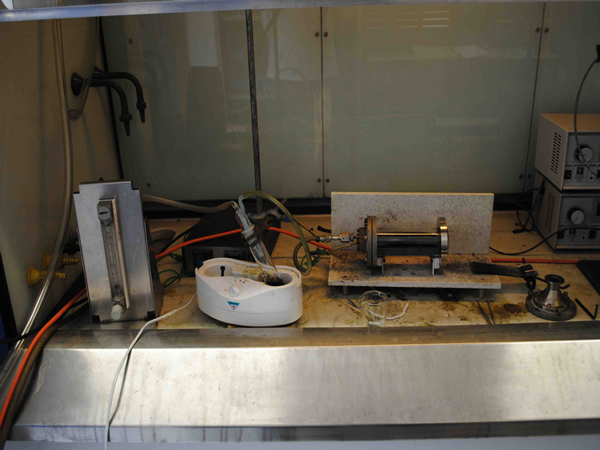 |
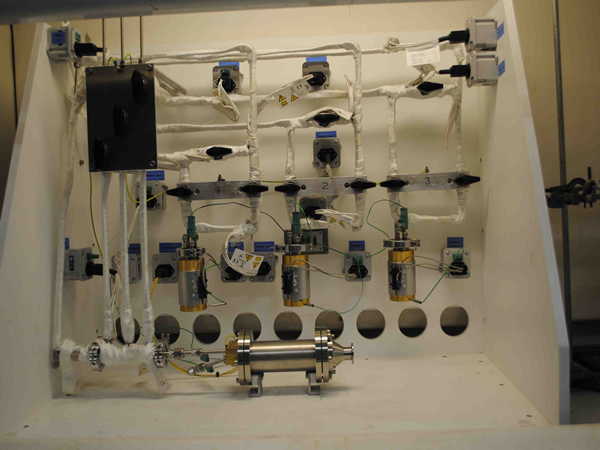 |
APCVD rig setup (left). Here is a picture of my brand new APCVD rig. This is a hybrid rig, meaning that as well as having an atmospheric pressure precursor flow it is possible to incorporate an aerosol flow or to directly inject a precursor thanks to a special baffle block design. It is also possible to generate electric fields into the deposition process with this rig. |
G15 - Gas Sensor and Solid State Chemistry Laboratory |
|
View of the office part of G15 (right). There is desk space for three researchers in this lab and houses the students and staff who work on gas sensors in the department. |
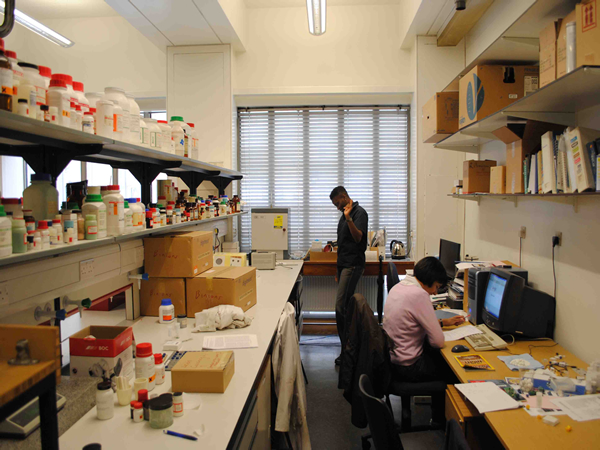 |
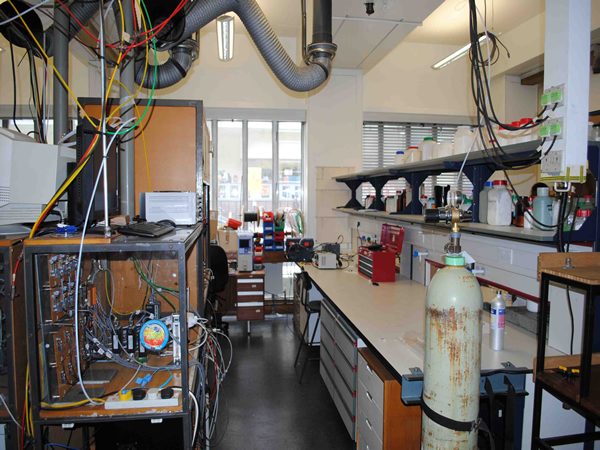 |
View of he lab part of G15 (left). We are one of teh best equiped labs in the UK, possibley Europe, maybe even the world, when it comes to carrying out research into metal oxide semiconductor gas sensors. We are able to go from materials discovery, synthesis and characterisation to device fabrication and testing all in the one lab. |
CS Gas Testing Rig (right). We have a large number of sensor test rigs available in G15. This one was inherited from Capteur Sensors and Analysers. Currently it is being put to use testing new CO2 monitoring sensors. |
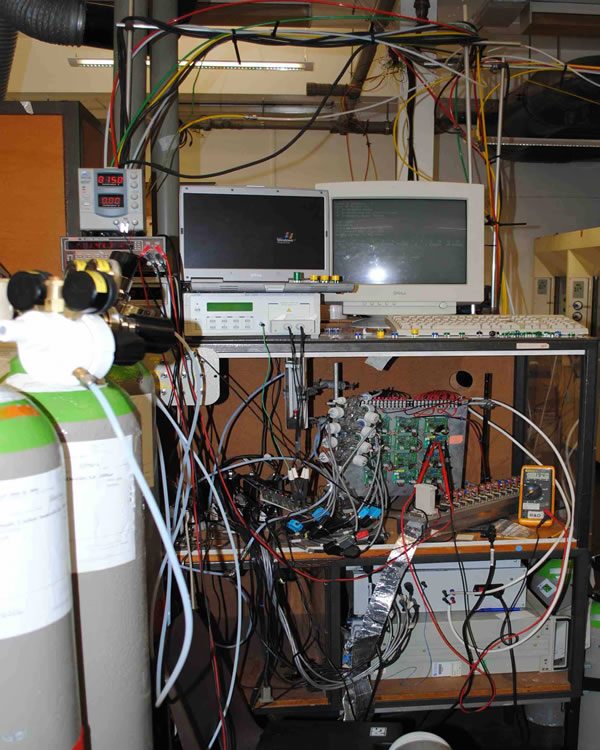 |
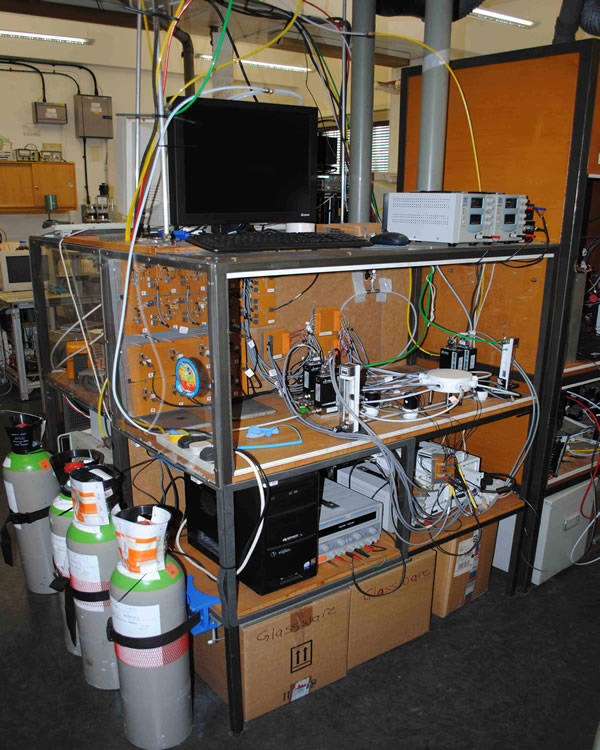 |
Our Newest Rig (left). The so called new rig is truely state of the art incorporating National Instruments technology, a symetrical test chamber for high speed sensor response measurements and four gas channels to analyse complex mixtures. |
The Red and Blue Rigs (right). These rigs were originally built in the early 1990's when Prof. David Williams (now based at the University of Auckland, NZ) ran the gas sensor group. The rigs are still working some twenty years later which is testement to the strong design and build. We are currently refurbishing these rigs by replacing solenoid valves and mass flow controllers and upgrading some of the electronics. Hopefully we will get another twenty years service out of them. |
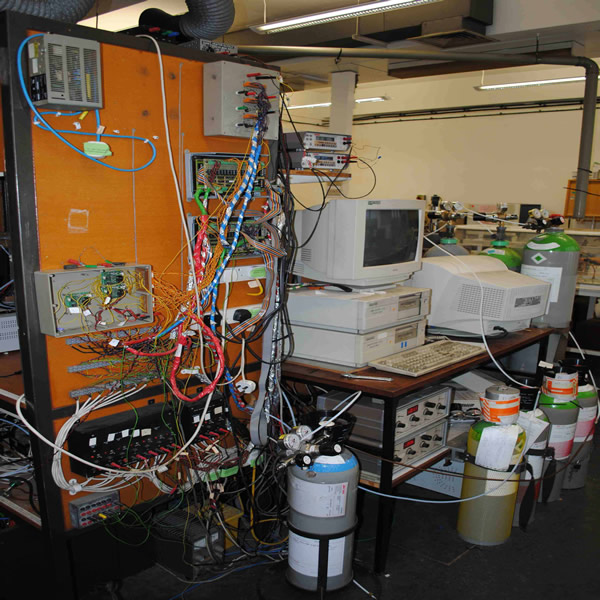 |
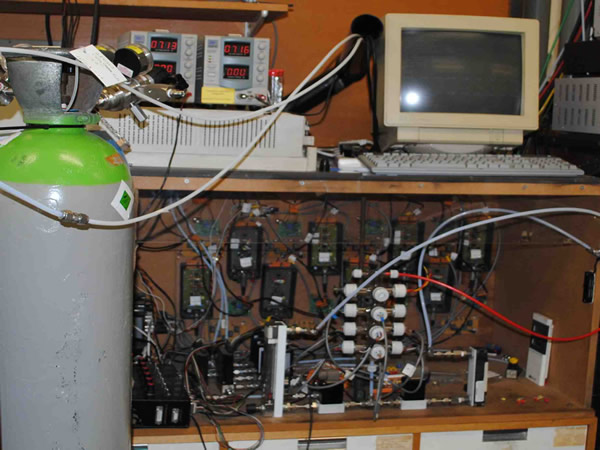 |
The Speed Rig (left). Originally built in the late 90's the speed rig was designed to make quick accurate measurements in order to probe sensor transients. It was the first rig at UCL to employ potentiostat measurement circuits. We have since reconfigured the rig for steady state measurements. It remains the workhorse of the lab, having been used recently in projects involving carbon nanotube based sensors, LPCVD fabricated sensors and zeolite modified sensors. |
DEK Screen printer (right). Our faithful screen printer used for the builk of sample preparation. |
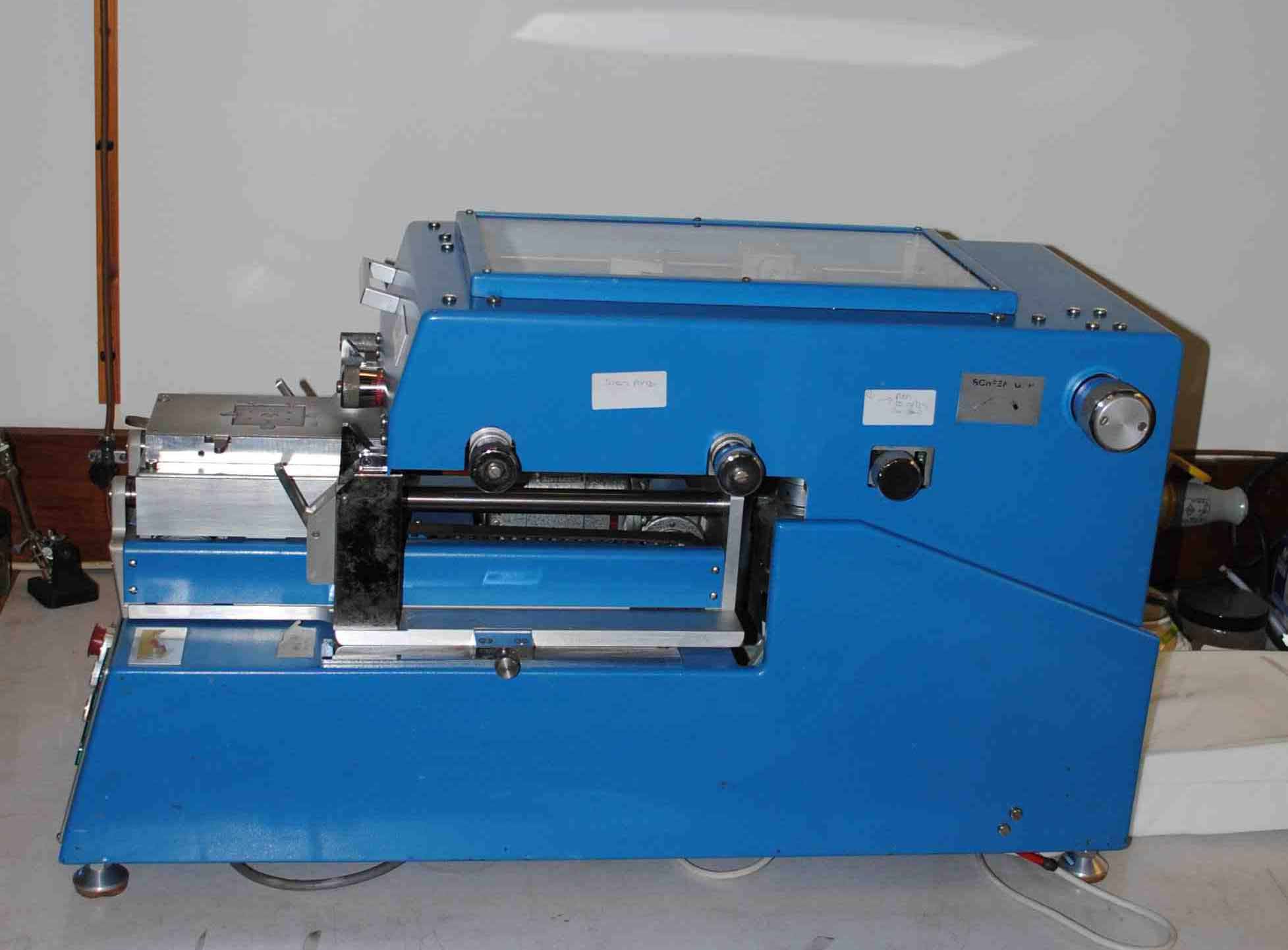 |
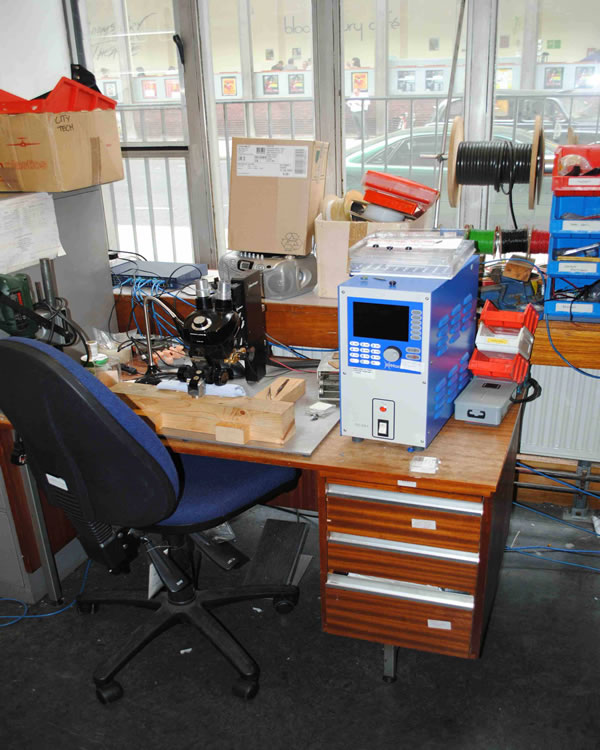 |
Microwelder (left). We use the microwelder to attach our sensor chips to the sensor housing. This can be a fiddly business until you get the hang of it. To develop the ability to put sensor packages together quickly is truely an intiation rite in the gas sensor group. |